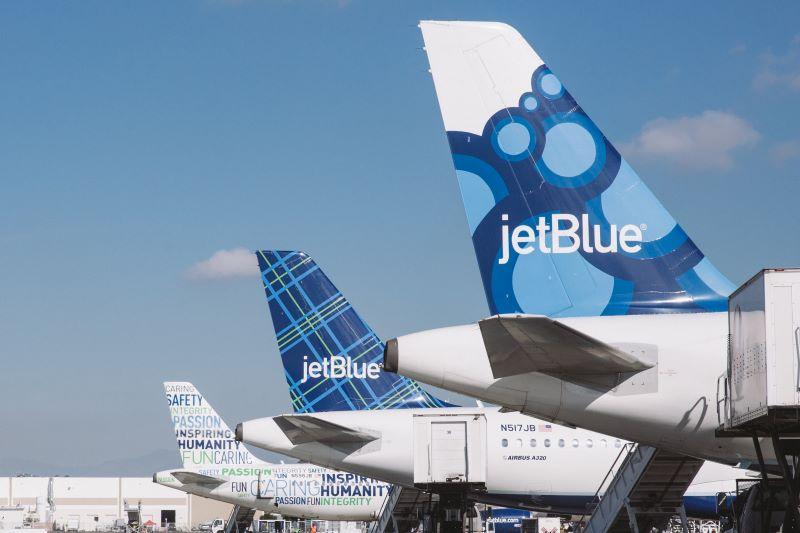
A post-pandemic shift in business travel patterns is affecting some network decisions at JetBlue Airways, the company’s top executive said.
Speaking at the JP Morgan Industrial conference March 14, CEO Robin Hayes said the carrier is having to reassess some service where virtual flexibility is replacing traditional day trips.
“We’re seeing that trend, and I think that’s here for good,” Hayes said. “We’re having to repivot some of our network choices around that.” Hayes pointed to Boston-LaGuardia, saying the carrier thought its planned frequency of service “was a great idea,” adding, “turns out, it wasn’t.”
According to Aviation Week analysis of OAG data, JetBlue currently operates 11X-daily service on the route and is scheduled to reduce to 60X-weekly by late May.
Meanwhile, the airline is expecting an “incredibly strong” summer for transatlantic travel. Hayes told investors the carrier had, from a fare perspective, been disruptive in the transatlantic market after introducing service to London Heathrow.
“If I look at the walk-up fares to London before entry and after entry, they were down 50% in some cases,” Hayes said. “I think where we maybe have had less impact is with the delays of the aircraft. We just took delivery of our six long-range airplanes; we haven’t been able to have the same reach that we originally planned. So our ramp up has been slow.”
JetBlue had no news on the progress of the anti-trust trial examining its Northeast Alliance (NEA) partnership with American Airlines, but noted the alliance was helping to “transform” the success and growth of its loyalty program.
Integration Team
Regarding the recent U.S. Justice Department (DOJ) suit to block its proposed acquisition of Spirit Airlines, Hayes was confident JetBlue’s argument would stand up before a judge and said a separate team had been formed to continue focusing on an integration.
“We want to execute really well in 2023 ... and we want to prepare for the merger with Spirit,” Hayes said. “So, what we did in our company is we’ve really separated out the responsibility of those things. We have a team that’s entirely focused on running 2023 and then we have a team that is focused on integration.” The integration team includes JetBlue staff and external consultants. Hayes noted the team also has access to “people that you would know who have been through this—other U.S. mergers—in the last 5-10 years,” declining to provide names.
“The challenge I’ve given our team is I think it’s right for us to aim high and say we want the most seamless integration in airline history,” Hayes said. “If there’s any good news about some of the regulatory timelines ... is it’s giving us more time to get ready for all of these changes. And we’ve also made some decisions early. We’ve been very clear; it’s going to be the JetBlue brand. We have a single fleet type.”
He added, “The fleet commonality is, I think, a big piece of what made us interested in this deal. Because we know how to retrofit airplanes.”
Frontier’s Take
Speaking at the same conference, the CEO of Frontier Airlines—who sought to merge with Spirit early in 2022—described a positive NEA outcome as a potential bargaining chip for JetBlue in moving an acquisition along.
“They have been pulling out all the stops to get this done, and I have every belief that they actually get it done,” Frontier CEO Barry Biffle said.
Declining to comment on whether Frontier would be interested in any potential divestitures that might come as a result of a JetBlue/Spirit merger, Biffle called the proposed deal good for consumers, in making JetBlue more competitive with the Big Four.
“I think consumers and the government are looking for that in the end, while they may fight it on its surface,” Biffle said. “Maybe there’s a divestiture path or something that gets them somewhere that they want to be. At the same time, it’s great for us, right? They’ve already admitted they’re going to raise the prices on all the existing Spirit capacity. There’s a lot of capacity that they have deployed and stimulated markets, and I think Frontier along with a few other carriers ... probably have the cost structure that can replace that capacity pretty quick. Not next month, but within a few years I think you can get it replaced.”
He added, “I think in the end, the consumers still win and Frontier wins.”
